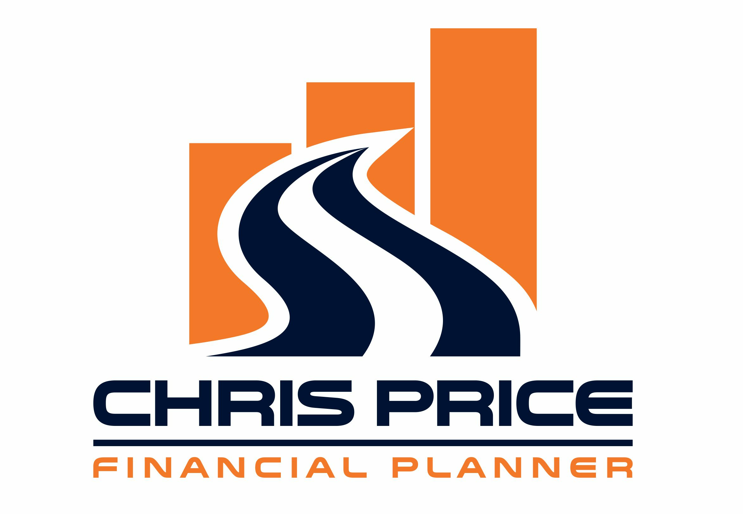By Christopher Price
Created on April 11, 2023
This article will…
- Provide a brief overview of what a 401(k) plan is.
- Explain the 4 factors you should consider when selecting investments for your 401(k).
As an investment advisor representative, one of the most important aspects of my job is helping clients make informed investment decisions.
A 401(k) plan is a retirement savings plan that allows employees to contribute pre-tax dollars to their accounts, which can then be invested in various investment options. For more information on 401(K)’s, check out my article called “5 Simple Steps When Your Company Offers a 401(k)”.
As you would have read in the article “5 Simple Steps When Your Company Offers a 401(k)”, the third step in setting up your 401(k) is picking the investments.
Think of the investments as the engine in your car. The investments will determine how fast your 401(K) can grow and/or how often your 401(K) will break down. You may think you want to set up your investments like the engine of a sports car, high performance, and high growth, but just like a sports car, if you don’t monitor and stay up to date on what is going on, you could experience an expensive repair. When it comes to picking your 401(K) retirement investments, make sure you pick one that fits your specific needs and situation.
Below are four factors you should consider when selecting investments for your 401(K).
- Your investment time horizon and Risk Tolerance
- Before making any investment decisions, it is important to consider your overall investment time horizon and risk tolerance. What are you investing for? How long do you have until retirement? What is your comfort level with market fluctuations? These are all important questions to ask yourself when deciding which investments to choose.
- If you have a longer time horizon until retirement, you can tolerate more risk in your investments, as you have more time to ride out any market fluctuations. On the other hand, if you are closer to retirement, you may want to consider more conservative investments to help preserve your savings. Also, you need to remember, you may be close to retirement, but you need this money to be there for your whole retirement, not just when you start retirement. This could be 30-plus years. Meaning, don’t think of your time horizon as when you are going to retire, but instead when you plan on using your 401(K). None of us like to lose money, but we all understand that you have to take a “risk to get a reward.” Some of us are wired to accept risk a little more than others. Finding out what your risk tolerance is, is personal. There are questions to help you answer what your risk tolerance might be. “HERE” is a link to a risk tolerance questionnaire. (MM202505-301658)
- Diversification
- Another important factor to consider is diversification. Diversification is the practice of spreading your investments across a variety of asset classes, such as stocks, bonds, cash, real estate, commodities, and the list can go on. Diversification is one of the few proven methods to increase your probability of a successful investment strategy. Diversification of your 401(K) investments can help reduce the risk of your portfolio and can improve your returns over the long term. Diversification does not mean more is better. It is not about how many different investments you have but how each of those investments work with each other. Think of the old saying, “Don’t have all your eggs in one basket.” You can have millions of eggs, but all in one basket.
- When selecting investments for your 401(k), it is important to consider diversification both within and across asset classes. For example, within the stock portion of your portfolio, consider investing in a mix of large-cap, mid-cap, and small-cap stocks, as well as international stocks. Similarly, within the bond portion of your
portfolio, consider investing in both government and corporate bonds, as well as short-term and long-term bonds. This list can go on and on. For more information on diversification. Look up non-correlating assets.
- Fees and Expenses
- Fees and expenses can have a significant impact on your investment returns over time. When selecting investments for your 401(k), it is important to consider the fees and expenses associated with each investment option. This is very hard to guide; sometimes, you get what you pay for. What we are referring to are fees and expenses that don’t represent value. The most common type of investment within 401(K)s are Mutual Funds. Now we can break Mutual Funds down into 100s of factors, and for this article, we will not be doing that. But we can look at the different share classes. Share class is how Mutual Funds determine the fee on that set up of money. Different share classes will be invested the same way by the same investment team but will charge you differently. The DOL and IRS are heavily encouraging 401(K) plan sponsors to make sure they have the lowest cost share classes available if a plan sponsor has not reviewed or benchmarked the 401(K) in a while, you may be paying more than you should.
- If you believe lower fees mean better, try looking for investment options, such as index funds and exchange-traded funds (ETFs), which typically have lower fees than actively managed mutual funds.
- However, it is important to consider the fees and expenses associated with any investment option, as they can vary widely.
- Performance
- While past performance is not necessarily indicative of future results, it is still important to consider the historical performance of any investment option you are considering for your 401(k). Seeing the track record of the fund manager is important. You can compare a mutual fund manager to a professional athlete. It is understandable to expect a good athlete to play well next season, but that doesn’t mean they will. Seeing past performance can help you get a sense of how the investment has performed in different market conditions and can help you make informed investment decisions.
- When evaluating performance, it is important to look at both short-term and long-term performance, as well as how the investment has performed relative to its benchmark.
- Also, it is not the fund’s performance that matters but the fund managers that run the fund. If the fund managers are replaced, past performance may not be relative to the future.
In summary, selecting investments for your 401(k) requires careful consideration of your investment goals, time horizon, risk tolerance, diversification, fees and expenses, performance, and many more. By taking these factors into account and working with a CERTIFIED FINANCIAL PLANNERTM, you can create a well-diversified investment portfolio that is tailored to your individual needs and helps you achieve your long-term financial goals.
Investments or strategies mentioned in may not be suitable for you and you should make your own independent decision regarding them. This material does not take into account your particular investment objectives, financial situation or needs and is not intended as recommendations appropriate for you. You should strongly consider seeking advice from your own investment adviser.Target date funds supply a “one stop” option, which are designed to provide you with an asset allocation based upon the presumed retirement date of the investor or the date money is to be withdrawn (i.e. the target date), usually at retirement. Typically, these are a fund of funds and have two layers of fees and expenses. The principal value of a target date fund is not guaranteed at any time, including at the target date. Target date funds allocation move toward emphasizing cash and fixed income elements as the funds approach their maturity or target dates. By reducing exposure to the growth elements, the risk of a sudden drop in the market affecting the retirement date diminishes.Asset allocation does not guarantee a profit or protect against loss in declining markets. There is no guarantee that a diversified portfolio will outperform a non-diversified portfolio or that diversification among asset classes will reduce risk.The information provided is not written or intended as specific tax or legal advice. MassMutual, its employees, and representatives are not authorized to give tax or legal advice. You are encouraged to seek advice from your own tax or legal counsel. Opinions expressed by those interviewed are their own and do not necessarily represent the views of MassMutual. Provided by Christopher Price, a financial representative with Coastal Wealth, courtesy of Massachusetts Mutual Life Insurance Company (MassMutual). CA license #4196813. ©2022 Massachusetts Mutual Life Insurance Company, Springfield, MA 01111-0001
CRN202605-4247055






